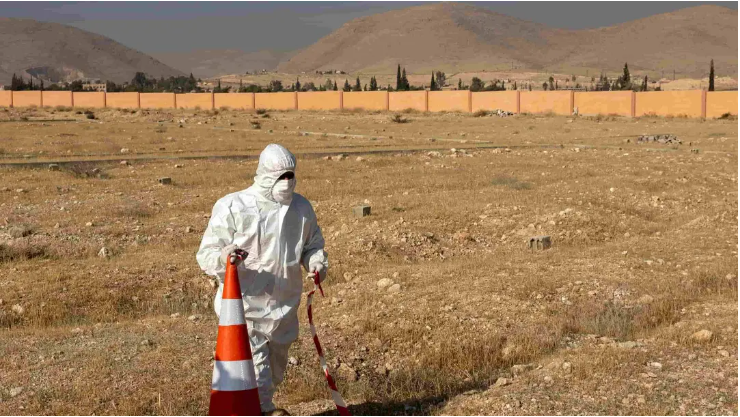40 Reported Killed in US Retaliatory Strikes in Syria, Iraq
The US on Friday launched strikes in Syria and Iraq against Iran’s Islamic Revolutionary Guards Corp Quds Force and related militias, in response to Sunday's drone attack that killed three American service members at a US base in Jordan. The strikes were reportedly aimed at over 85 targets and ...
Facts
- The US on Friday launched strikes in Syria and Iraq against Iran’s Islamic Revolutionary Guards Corp Quds Force and related militias, in response to Sunday's drone attack that killed three American service members at a US base in Jordan. The strikes were reportedly aimed at over 85 targets and killed nearly 40 people.1
- Sunday's drone strike was claimed by the Islamic Resistance — an umbrella organization made up of pro-Iranian armed factions — in Iraq. Iran, however, has denied any association with the attack.2
- The retaliatory strikes on Syria and Iraq — which had been pre-planned and confirmed by US Defense Secretary Lloyd Austin on Thursday — come as Washington has faced mounting pressure from some Republicans to respond to last week's strike.3
- According to Iraqi officials, the US strikes — which were reportedly targeted mainly at command centers — left 16 dead and at least 23 injured. The government initially reported that civilians were among those killed, but Iraq's Popular Mobilization Force said the 16 killed were its members. The Syrian Observatory for Human Rights reported that 23 were killed in Syria.1
- In a statement released Friday, Biden said, 'Our response began today. It will continue at times and places of our choosing.' Meanwhile, Iraq has summoned the US envoy in Baghdad in protest of the strikes, while Iran strongly denounced the move on Saturday but stopped short of threatening to retaliate.1
- This came as Kataib Hezbollah, an Iran-backed militia part of the Islamic Resistance reportedly responsible for the drone attack, suspended all operations against US forces earlier this week, while the Al-Najuba armed group said it would continue to target US forces on Friday.4
Sources: 1REUTERS, 2BBC News, 3Guardian and 4CNN.
Narratives
- Republican narrative, as provided by The Hill. Iran is apparently calling the shots here. It hasn't faced the consequences of attacking the US and is unlikely to. Hitting its proxies is not the answer. That is a way too predictable and tired approach by US Pres. Joe Biden, proving again that his bite is as feeble as his bark.
- Democratic narrative, as provided by Newsweek. Faced with the prospect of an all-out war in the Middle East, Biden is taking a practical approach to US retaliation. A direct strike on Iran will guarantee an escalation in the conflict, which, for all practical purposes, would be unsustainable. Pin-pointed surgical strikes that do maximum damage to the rogue nation's strategic tentacles are what the US must aim for.
- Pro-Iran narrative, as provided by PressTV. Though the Western media may portray Iran as a rogue state acting belligerently, in reality, US foreign policy is the primary driver of violence and instability in the Middle East. By occupying countries in the region like Iraq and Syria while ruthlessly supporting Israel's brutal campaign against Palestinians in Gaza, the US has directly thrown fuel on the fire of regional tensions.







